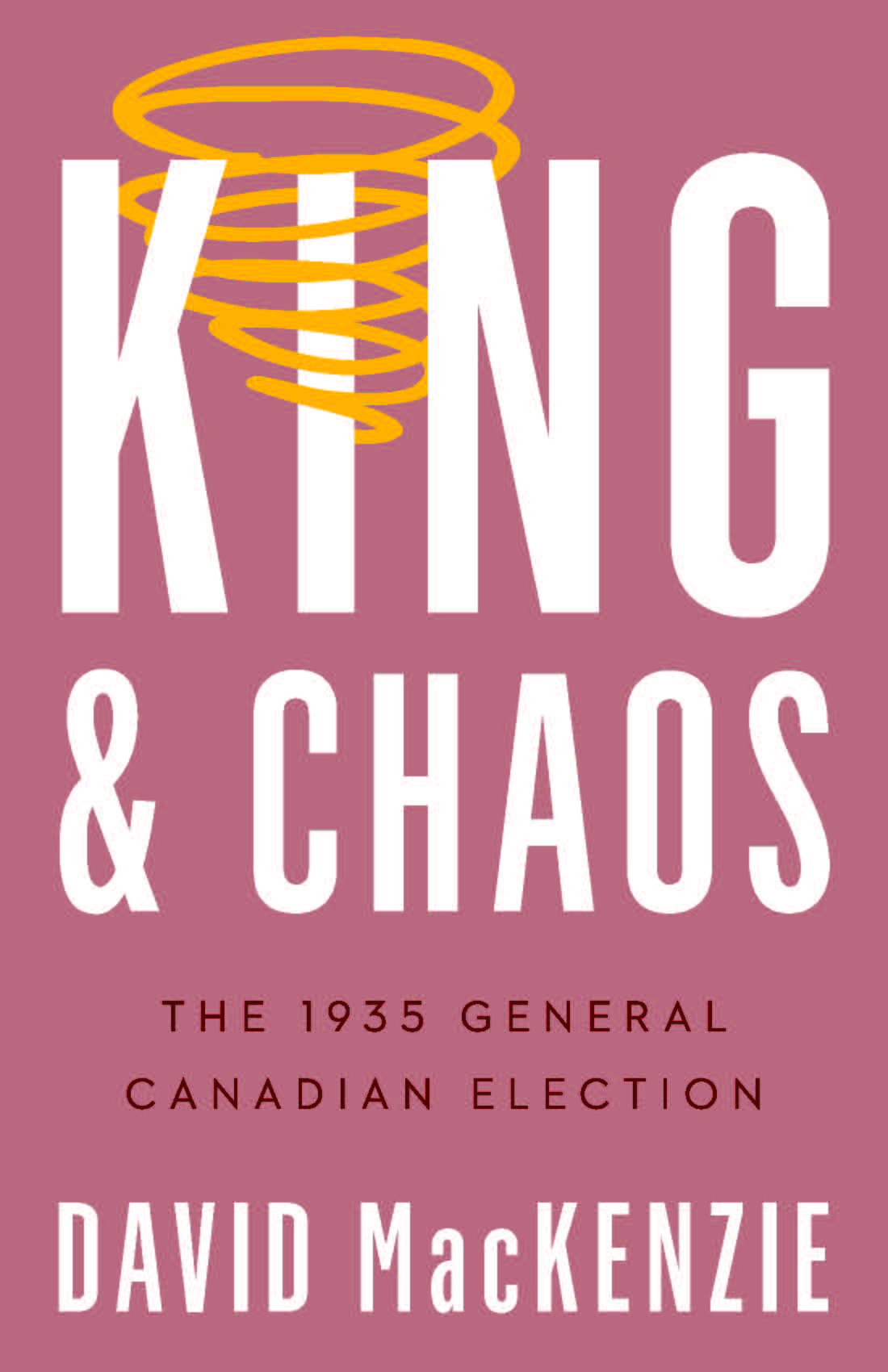DAVID MACKENZIE PUBLISHES BOOK ON THE 1935 CANADIAN ELECTION

DAVID MACKENZIE PUBLISHES BOOK ON THE 1935 CANADIAN ELECTION
Professor David MacKenzie recently published King and Chaos: The 1935 Canadian General Election (University of British Columbia Press). The election campaign unfolded during the trauma of the Great Depression, the rise of Fascism in Europe, and other grave crises threatening Canadians. In a campaign widely seen as a referendum on Conservative prime minister R.B. Bennett’s government, Mackenzie King’s Liberals won 173 seats compared to 39 for the Tories. Social Credit took 17 seats, the Co-operative Commonwealth Federation captured 7, while small parties and independents won 9. Thus began a Liberal dynasty that won the next four general elections until its defeat at the polls in 1957. Beyond the headlines of King’s victory, the contest brought working-class issues to parliament to a greater degree than before, largely due to the emergence of the CCF (forerunner to the New Democratic Party) and others on the political left, whose legacies permanently changed the nation’s politics.
Federal elections provide the closest thing to a snapshot of the country at any given moment, and examining them is important for our understanding of Canadian history. The 1935 election “marked a shift away from past debates over tariffs, railways, immigration, and the empire,” Dr. MacKenzie noted, “and signalled a turn from the old National Policy of the 1870s to the new priorities of a modern industrial society.” This book is a contribution to UBC Press’ “Turning Point Elections” series, and follows studies Professor MacKenzie co-authored with TMU’s Patrice Dutil on the 1911 and 1917 elections. According to Trent University historian Christopher Dummitt, King and Chaos “elegantly” leads readers through the events of the 1930s with “ease and expertise.” Professor MacKenzie’s new publication is his ninth book, with some of the others including: ICAO: A History of the International Civil Aviation Organization; Inside the Atlantic Triangle: Canada and the Entrance of Newfoundland into Confederation 1939 1949; and A World Without Borders: An Introduction to the History of International Organizations.